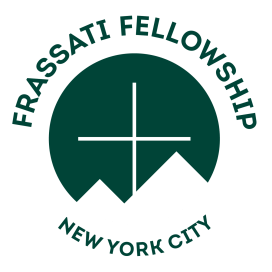I tell you, my friends,
do not be afraid of those who kill the body
but after that can do no more.
I shall show you whom to fear.
Be afraid of the one who after killing
has the power to cast into Gehenna;
yes, I tell you, be afraid of that one.
Are not five sparrows sold for two small coins?
Yet not one of them has escaped the notice of God.
Even the hairs of your head have all been counted.
Do not be afraid.
You are worth more than many sparrows.
—Luke 12:4–7My confidence is placed in God who does not need our help for accomplishing his designs. Our single endeavor should be to give ourselves to the work and to be faithful to him, and not to spoil his work by our shortcomings.
—St. Isaac Jogues
 Today we celebrate the feast of St. Isaac Jogues, one of the North American martyrs who gave his life serving the Native American people (and also the first priest to set foot in Manhattan). Through his life and martyrdom, he embodied the verses from today’s Gospel. He had no fear of those who threatened to kill his body, although there were many. He focused instead on the well-being of the soul, both preserving the sanctity of his own soul and awakening other souls to Christ.
Today we celebrate the feast of St. Isaac Jogues, one of the North American martyrs who gave his life serving the Native American people (and also the first priest to set foot in Manhattan). Through his life and martyrdom, he embodied the verses from today’s Gospel. He had no fear of those who threatened to kill his body, although there were many. He focused instead on the well-being of the soul, both preserving the sanctity of his own soul and awakening other souls to Christ.
In the summer of 1642, while Fr. Jogues was traveling with the Huron people he was serving, he was captured and tortured by attacking Mohawks. They beat him mercilessly and chewed off his forefingers, leaving his hands permanently mutilated. Fr. Jogues spent the next seventeen months in captivity, treated as a slave. Even in those unimaginable conditions, he sought to connect with people’s souls. He baptized seventy people and tended to the sick, including one of the men who had bitten off his fingers.
For Fr. Jogues, the horrible bodily tortures he suffered—undoubtedly painful though they were—were ultimately inconsequential. When he was freed from captivity and returned to civilization, he spoke fondly of his former persecutors, never allowing the physical pain they had caused him to cloud his awareness that they were beloved children of God. He had demonstrated his genuine love for these people, who had reason to distrust Westerners, by learning their language and customs and being attentive to their needs. He wanted them to realize the incalculable worth of their souls—they were worth more, indeed, than many sparrows.
People thought Fr. Jogues was crazy to return to his mission after the ordeals he had suffered, but he was undeterred. He was eventually martyred in 1646, captured again by Mohawks and killed by a blow to the head with a tomahawk. Some of his last words were, “I do not fear death or torture. I do not know why you would kill me. I come here to confirm the peace and show you the way to heaven.”
Curiously, his killer later underwent a radical conversion to the Catholic faith and took the name Isaac Jogues when baptized. He too was martyred just a week later. One of the missionary priests said afterward, “God willing, there are now two Isaac Jogueses in heaven.” I have to imagine that the first Isaac Jogues had taken an active interest in caring for his persecutor, interceding for his conversion and a martyr’s crown. His goal, after all, had always been heaven, not just for himself but for everyone. Ultimately, his joyful confidence in Christ drew many souls upward in his wake.

One thought on “Martyrdom of St. Isaac Jogues”